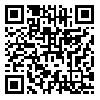Sun, Feb 22, 2026
Volume 4, Issue 1 (Spring 2014)
PTJ 2014, 4(1): 20-24 |
Back to browse issues page
Download citation:
BibTeX | RIS | EndNote | Medlars | ProCite | Reference Manager | RefWorks
Send citation to:



BibTeX | RIS | EndNote | Medlars | ProCite | Reference Manager | RefWorks
Send citation to:
Boluki S, Dadgoo M, Nurizadeh dehkordi S, Kamali M. The Effect of Knowledge & Learning on Perception and Experience of Independence among Patients with Spinal Cord Injury. PTJ 2014; 4 (1) :20-24
URL: http://ptj.uswr.ac.ir/article-1-129-en.html
URL: http://ptj.uswr.ac.ir/article-1-129-en.html
1- tehran university
2- School of Rehabilitation Science, Iran University of Medical Sciences
3- school of rehabilitation sciences
2- School of Rehabilitation Science, Iran University of Medical Sciences
3- school of rehabilitation sciences
Abstract: (5501 Views)
Purpose: Individuals’ personal awareness and learning after spinal cord injury is one of the most important factors in patients’ confrontation with subsequent disabilities and new life style which affects their ultimate independence. This article is an abstracted result of a qualitative study on effective factors of independence among patients with spinal cord injury.
Methods: This study adopts a phenomenological qualitative approach and chooses its research samples from individuals with spinal cord injury including four women and seven men with paraplegic and tetraplegic SCI who live in Tehran. The data gathered trough Indepth semi-structural interviews and interpreted using Coliazzi’s method.
Results: The data divided into 10 categories and 38 subcategories arranging in three general domains: the individual, familial and social. Knowledge and learning are important categories in the individual domain which includes five subcategories: Initial knowledge level, searching for information, learning from similar pattern, needs based learning, learning from experience and repetition.
Conclusion: The research shows that the amount of information about the spinal cord injury before and learning more information after the injury influences on the sense of independence, and individuals who trying more to learn about their subsequent difficulties and needs are more successful in their future life.
Type of Study: Research |
Subject:
Sport injury and corrective exercises
Received: 2013/09/5 | Accepted: 2014/02/10 | Published: 2014/04/1
Received: 2013/09/5 | Accepted: 2014/02/10 | Published: 2014/04/1
Send email to the article author
| Rights and permissions | |
 |
This work is licensed under a Creative Commons Attribution-NonCommercial 4.0 International License. |



